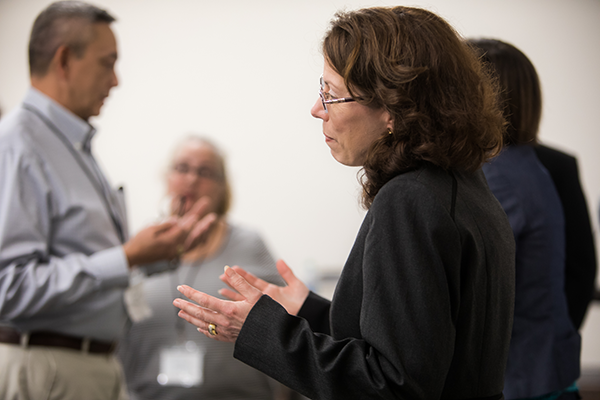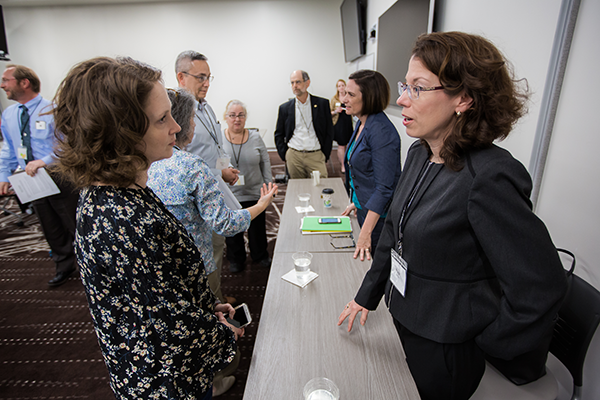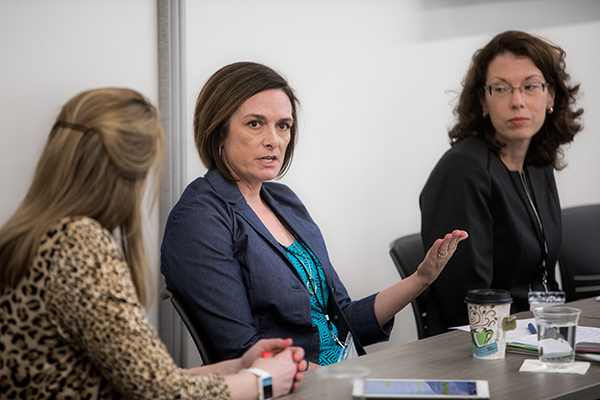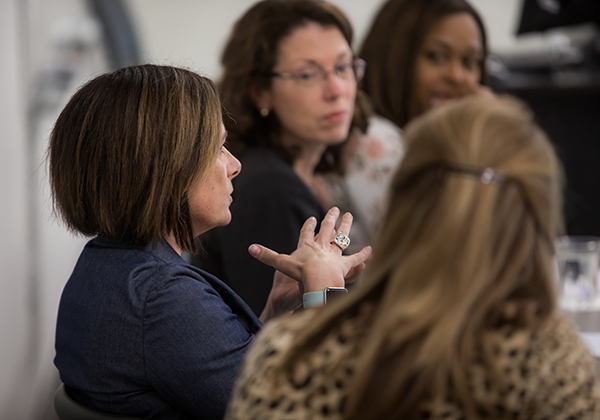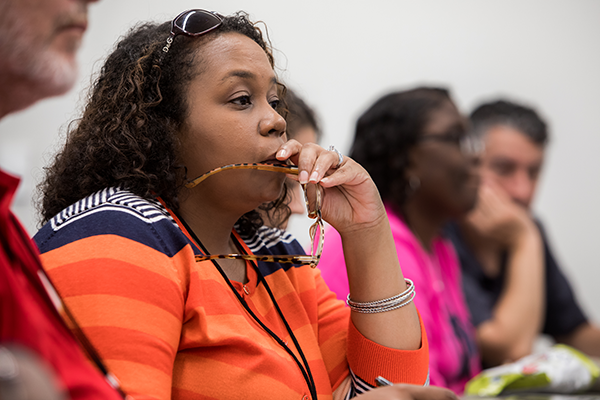COMMENTS FROM
2018 CONFERENCE
2018 Comments
“This country has to value education. We are the most powerful country, we are the wealthiest country in the world… I always say, show me your budget, and I’ll tell you what you value. We have to start valuing teachers. The countries that are outperforming us, they value learning, they value teachers. We have to increase the compensation for teachers, and we have to ensure they are highly trained and skilled. But we also need to have highly trained and skilled administrators and superintendents because it all starts with leadership.”
— Adrian Mims, founder and director of the National Calculus Project
“My students are my biggest source of hope. They are absolutely amazing. Sometimes you do have some kids that do struggle– those you worry about. But I see some absolutely amazing, wonderful students every day. They volunteer, they work hard, they have goals and dreams. I would never want to hurt their goals and dreams. I would never want to limit their opportunities because I’m not prepared or I’m not taking advantage of opportunities.”
–Alisa Hobgood, math teacher at West Florence High School and vice president-elect of the South Carolina Council of Teachers of Mathematics
“You have a strong engineering workforce in your state. Take advantage of that to become mentors and role models, not just to K-12 and college students but also to teachers. Bring students into the workplace to see what engineers do.”
— Paige Smith, program director in the Directorate for Engineering at the National Science Foundation
“Math in general, and calculus in particular, create certain connections in students’ brains that will help them be creative and problem-solvers in any field. Even if they don’t go on the engineering path, that calculus will help students be proactive and become big thinkers. They will be the masters of anything else.”
–Simona Spinner, Math teacher at Cross High School, Berkeley County School District
“I wish there were a way for colleges to talk to the high schools. I feel like the high schools think ‘this is what we should do,’ and the colleges think, ‘this is what we should do,’ and there’s not a connection.”
–Julia Brisbane, junior in bioengineering at Clemson University
“I’m a firm believer in giving kids the tools to be successful, and I think at younger ages we’re not expecting them or telling them these things are possible for them. I think we’re cutting off the pipeline too early and saying, ‘You’re not going to need this later.’”
— Rhoda Latimer, doctoral student at Clemson University in curriculum and instruction and mathematics education; and a former middle-school math teacher
“As educators, guidance counselors, professors and teachers, we need to make sure the students have a greater understanding of what preparation they need to be successful. We just need to get back to the basics from elementary school up and keep enforcing it.”
–Geniffer Bookhardt, associate director of admissions and recruitment at South Carolina State University
“The way I look at math, it helps to form patterns on the brain that help you to do troubleshooting. In manufacturing, there’s a lot of troubleshooting and breaking things down into steps. You don’t approach it as one big problem, but you break it down into steps. That’s where I feel calculus comes in in manufacturing.”
— Stephen Mason, associate vice president for economic and workforce development at Denmark Technical College
“We want to find out why some of the students are not ready now for pre-calculus and how we can help them to prepare them to be ready. If we can prepare them before they arrive at The Citadel so they will be ready for calculus I, then I can see for sure they will finish in four years.”
— Mei Chen, professor and department head of math and computer science at The Citadel




